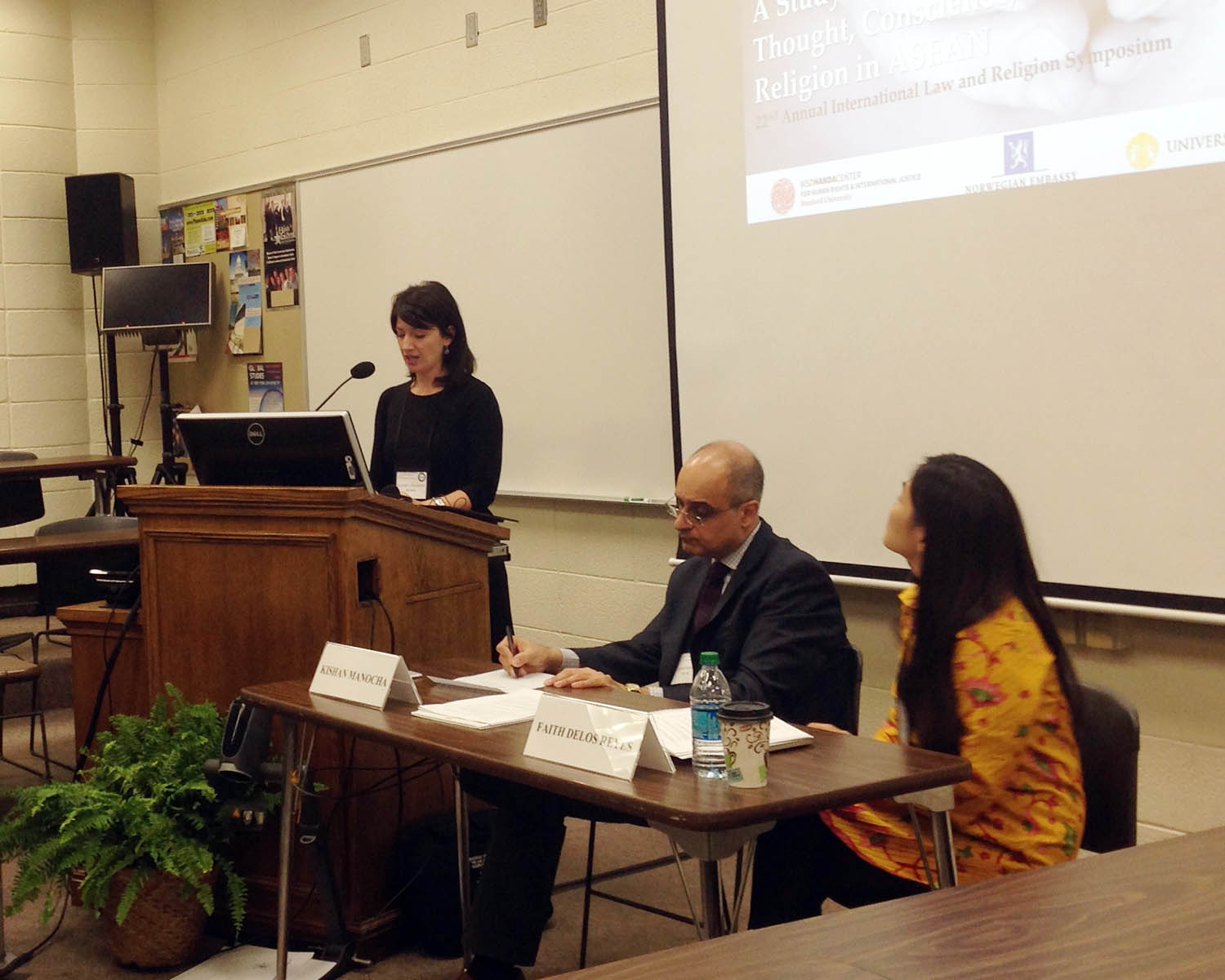2015 Symposium: International Organizations

Reported by Annalee Hickman Moser
In the International Perspectives Breakout Session moderated by David H. Moore, professor of law at the J. Reuben Clark Law School at Brigham Young University, Elizabeta Kitanović, from Belgium, Kishan Manocha, from Poland, and Faith Delos Reyes, from Indonesia, discussed the religious freedom work that each does with his/her respective organization and compared and contrasted different countries’ perspectives that each of these experts has been able to research personally.
Elizabeta Kitanović, Executive Secretary, Conference of European Churches (CEC), explained how the CEC is engaged with European institutions. One example, from a recent conference held in Turkey, was that they selected the European Commission to work with the fundamental rights agency to fight for the rights within the European Union. She highlighted various violations of human rights, in particular those violations of religious freedoms or beliefs. She also explained that the CEC is active in the OSCE (Organization for Security and Co-operation in Europe) international organization. It specifically participates in different round tables about human rights. She concluded with gratitude and thanks because all the work she mentioned would not be possible without the members from the 114 churches that belong to the CEC, which are engaged and interested in religious freedom.
Kishan Manocha, Senior Advisor on Freedom of Religion and Belief for the Organization for Security and Co-operation in Europe at the Office for Democratic Institutions and Human Rights, gave an overview of the approach of the OSCE in advancing religious freedom. He stated that OSCE institutions understand that the greatest investment in security should be investing in freedom of religious beliefs since it is not just a human right, but it has strategic value. Policymakers also understand this right cannot be advanced on its own. He emphasized that there has been a discussion in the OSCE with some states claiming it is about human rights, other states claiming it is about tolerance, mutual understanding, and dialogue. OSCE institutions made it clear in July that it can never substitute for the inescapable duty of the states to respect and that they should do everything in their power to encourage dialogue and not interfere in that process. He concluded that human rights for all are guaranteed; otherwise, those dialogues are meaningless and are not addressing reality.
Faith Delos Reyes, Research and Project Coordinator for the Human Rights Resource Centre (HRRC) at the University of Indonesia, spoke about HRRC’s book that she co-edited entitled, “Keeping the Faith: A Study of Freedom of Thought, Conscience and Religion in ASEAN,” which presents and analyzes reports for ten countries, namely Brunei, Cambodia, Indonesia, Laos, Malaysia, Myanmar, the Philippines, Singapore, Thailand, and Vietnam. Some of their findings include that these countries are hesitant to sign on to international conventions, that religious freedom is legally required in all countries except for Brunei, and five out of the ten countries privilege one religion above the others. She gave a short religious freedom overview for most of the ten countries. Then she concluded by describing three main factors that influence persecution and/or discrimination, those being the politicization of religion, ethno-religious nationalism, and the weak rule of law.